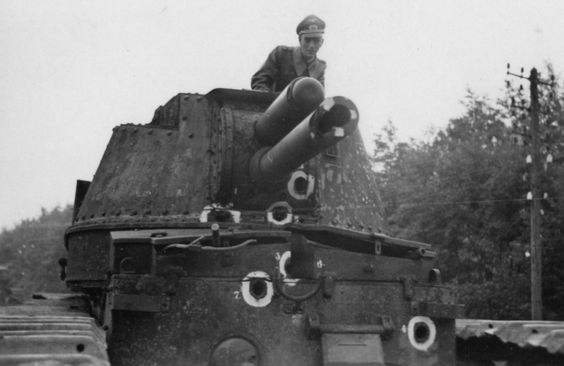Wednesday 26 June 1940
 |
| The 26 June 1940 Los Angeles Times headline notes that the "Air war rages over Britain." |
U-UA (Kapitänleutnant Hans Cohausz) sinks 3,828-ton Norwegian freighter "Crux" about 300 miles west of Cape Vincent, Portugal at 02:28. All 30 onboard survive. The Crux had been sailing with Convoy OG-34 but had separated from that convoy.
German raider Widder captures Norwegian freighter Krossfonn and sends it to France with a prize crew.
The Admiralty extends the blockade to include France.
RMS Queen Mary, in use as a troopship, sets sail for the Middle East with 5,000 troops aboard.
Battle of the Mediterranean: Italian vessel Loasso hits a mine and sinks. The mine was laid by the British submarine HMS Rorqual.
European Air Operations: The RAF makes daylight raids on German oil installations with 13 bombers, and during the night attacks seaplane bases at Texel and Heider and airfields in Holland and Germany.
Italian raids on Malta continue. The raids come from both Libya and Sicily for the first time. The British air raid warning system fails to give alerts due to overnight storms which topple a radar mast, leading to 37 civilian deaths.
The Luftwaffe's night raids against Great Britain continue. KG 27 sends about 100 aircraft against northern England and southern Scotland. In addition, about three Heinkel 111s attack the docks at Avonmouth and Portishead. Some others attack the train station at Bristol. The Luftwaffe loses one bomber.
The Luftwaffe is withdrawing many of its fighter units to their home bases in Germany for rest and refit. JG 26 returns to its home bases on the Rhine, but before it does, it loses ace Lt. Otto-Heinrich Hillecke of II./JG 26 in a dogfight.
A major Luftwaffe conference is held at The Hague to discuss the new strategies necessary for a war against England. In attendance are: Generalfeldmarschall Göring, Generalluftzeugmeister Ernst Udet, General Albert Kesselring, Chief of Personnel General Kastner, General Bruno Lörner and ZG 1 Gruppenkommandeur Hptm. Wolfgang Falck. Goering instructs Falck to set up a Nachtjagdgeschwader (NJG) force, initial formation designated NJG 1, which will have two groups: one of Bf 110s, and the other of Bf 109s. Falck chooses Macki Steinhoff to lead the second group.
 |
| Barricades on the A23 near Brighton, Sussex. 26 June 1940. |
Hitler concludes his visit to his old World War I battlefields.
Soviet/Romanian Relations: Soviet Union Foreign Minister Molotov demands 17,000 square km of Romanian territory in Bessarabia and Northern Bukovina. Romania appeals to Hitler, who does not want any trouble at this time with the Soviets and encourages King Carol to give in.
German/Italian Relations: Hitler messages Mussolini and encourages him to occupy the Suez Canal.
De Gaulle, meanwhile, creates the French Volunteer Legion in England and sets up a center for armaments and scientific research.
British Military: Sir Alan Brooke, fresh off his command of the BEF, is named to command the Southern Command.
Turkey: The country reiterates its non-belligerency. Both sides are frantically trying to woo it.
Iran: Ali Mansur becomes the new Prime Minister.
China: At the Battle of South Kwangsi, the Japanese 22nd Army occupies Mingchiang without opposition. This gives it control over the border with French Indochina, along which the Japanese have long suspected the French of supplying arms to China. The French already have pledged to discontinue any such shipments.
Soviet Homefront: A 7-day work week is instituted. No worker may quit a job without authorization. Being more than 20 minutes late to work becomes a criminal offense which will result in a 25% pay cut. These draconian measures are somewhat curious, as the USSR is not at war with anybody. The official justification is to ward off "capitalist aggression." However, the only somewhat-capitalist country nearby of any power happens to be Germany, supposedly an ally.
 |
| A pillbox on the promenade at Worthing, England, 26 June 1940. |
The London Times takes umbrage at the continued humiliation of Her Majesty's Armed Forces by the Germans. It sniffs at the "refined cruelty to UK prisoners at Malines. All helmets are replaced by top hats, bowlers, bonnets, berets to make the POWs appear clownish."
French Homefront: It is the day of national mourning proclaimed by the government on the 25th.
American Homefront: The British firm Rolls Royce gives Packard Motor Car Company the license to build its engines for the P-51 Mustang fighter.
 |
| Life returns somewhat to normal in Amsterdam. 26 June 1940. |
June 1, 1940: Devastation at Dunkirk
June 2, 1940: Hitler Visits France
June 3, 1940: Operation Paula
June 4, 1940: We Shall Fight
June 5, 1940: Fall Rot
June 6, 1940: Weygand Line Crumbling
June 7, 1940: British Evacuating Narvik
June 8, 1940: Operation Juno
June 9, 1940: Norway Capitulates
June 10, 1940: Mussolini Throws Down
June 11, 1940: Paris an Open City
June 12, 1940: Rommel at St. Valery
June 13, 1940: France Goes Alone
June 14, 1940: Paris Falls
June 15, 1940: Soviets Scoop Up Lithuania
June 16, 1940: Enter Pétain
June 17, 1940: The Lancastria Sinks
June 18, 1940: A Day of Leaders
June 19, 1940: U-boats Run Wild
June 20, 1940: Pétain Wilts
June 21, 1940: Hitler's Happiest Day
June 22, 1940: France Is Done
June 23, 1940: Hitler in Paris
June 24, 1940: Six Million Jews
June 25, 1940: German Celebrations
June 26, 1940: USSR Being Belligerent
June 27, 1940: Malta in Peril
June 28, 1940: Channel Islands Bombed
June 29, 1940: Gandhi Insists on Independence
June 30, 1940: Channel Islands Occupied
2020





